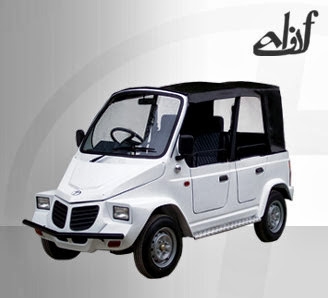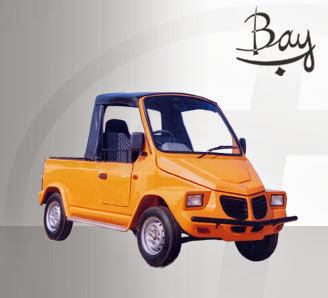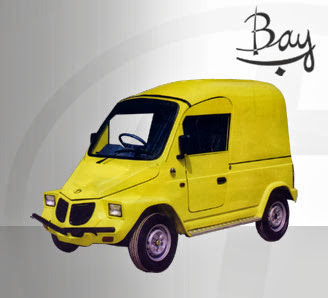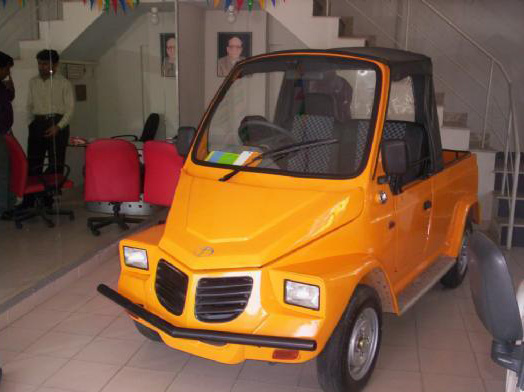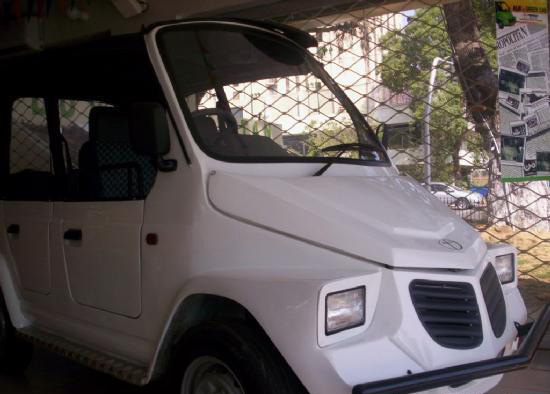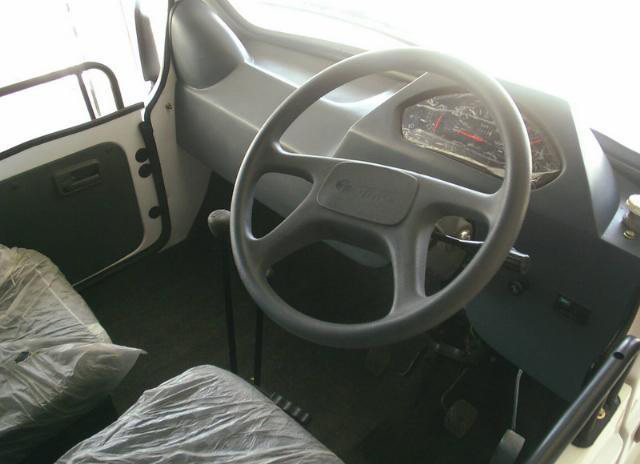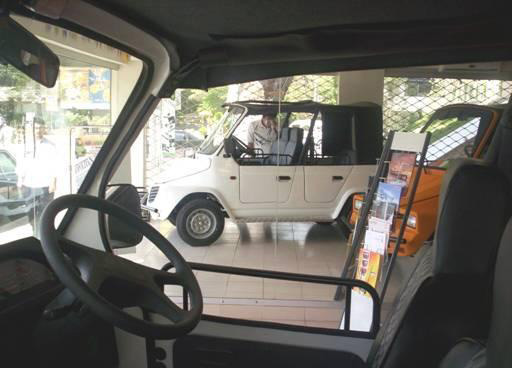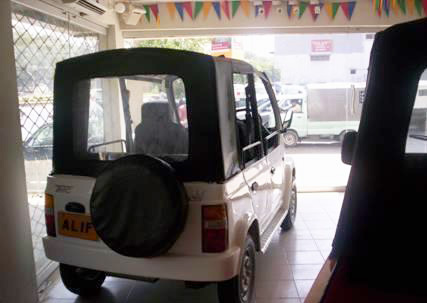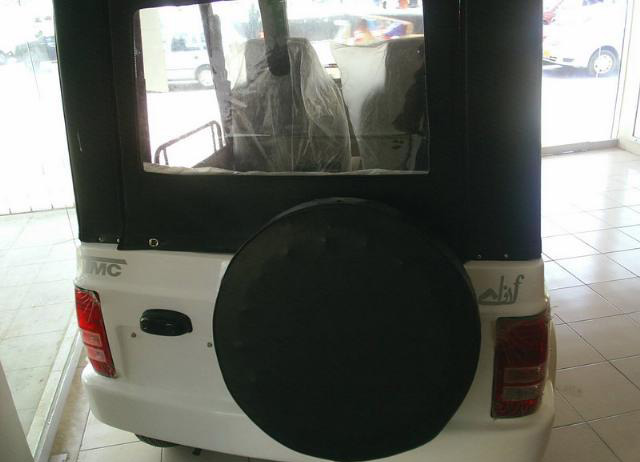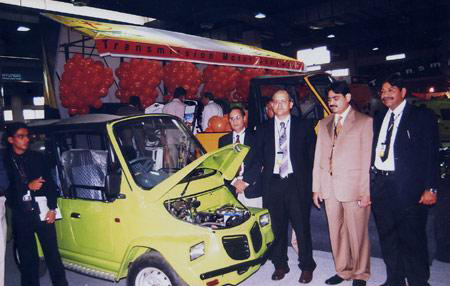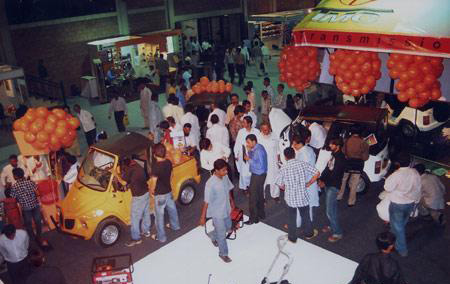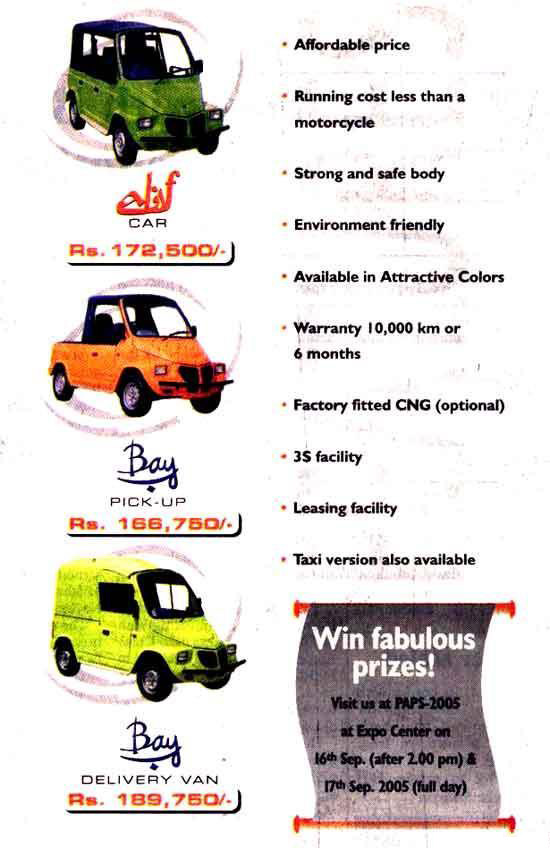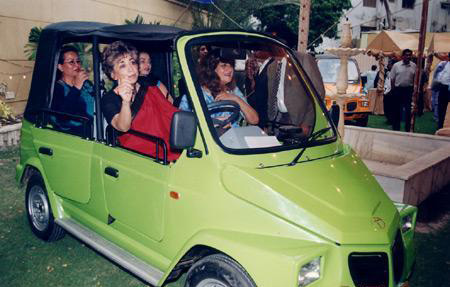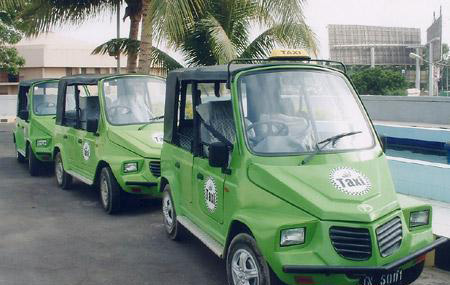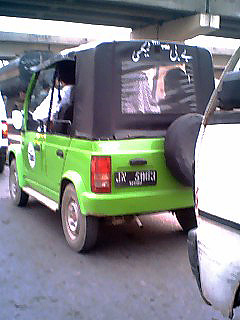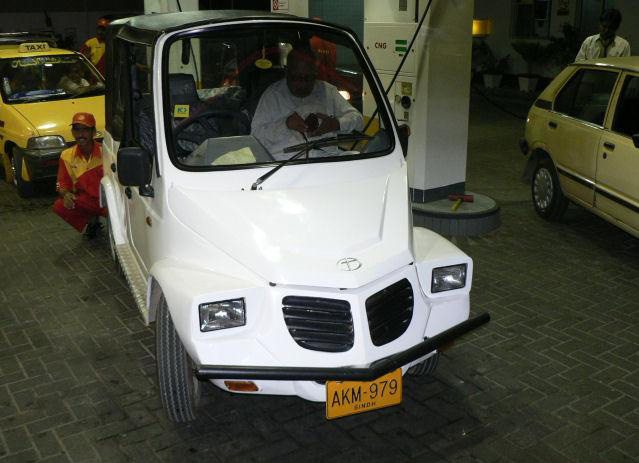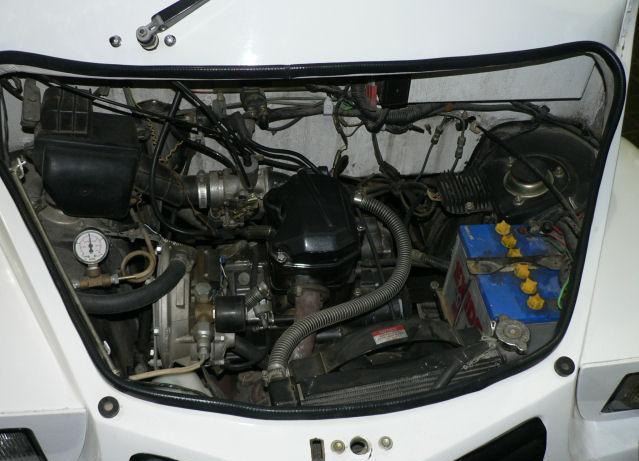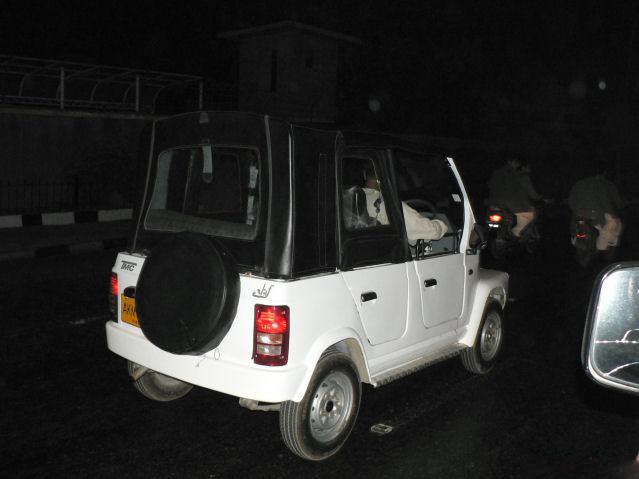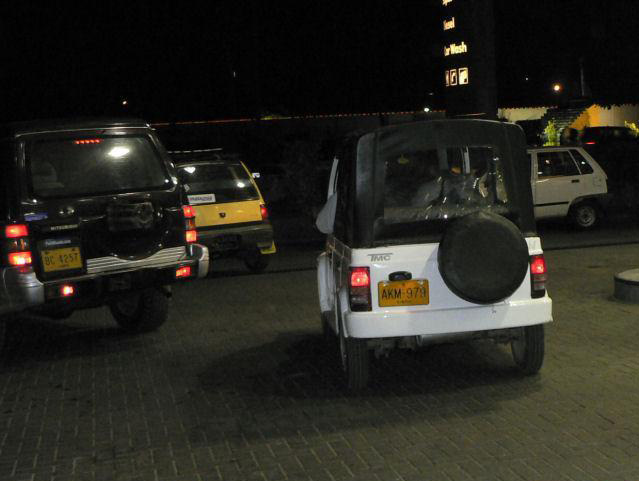The small vehicle segment of the market in Pakistan is primarily dominated by Pak Suzuki for several decades. Yet, the competition continued to emerge at various points in time, even though the majority of these attempts were abject failures due to a dearth of homework, inferior products, and ineffective business and marketing exercises.
One such example was TMC (Transmission Motor Corporation Private Limited) which introduced the Alif vehicle and Bay pickup and delivery van in 2005, around the same time when Adam Revo was introduced to the market. TMC was a wholly subsidiary of Transmission Engineering Industries Limited (TEIL), which was a listed company in the Karachi and Lahore Stock Exchanges.
TMC Alif and Bay vehicles that were introduced in 2005
According to the company, these cheaper cars were intended to bridge the gap between motorcycles and entry-level 800cc cars (Suzuki Mehran to be specific). TEIL reportedly invested Rs 40 million in TMC which had technical collaboration with some unnamed Chinese companies for vehicle and main assembly manufacturing. The company said TMC Alif car, Bay pickup, and Bay delivery were “modified and improved” according to the local needs, roads, and weather conditions.
Related: Remembering ‘Cars from the Previous Decade’
While these words seem a lot impressive to read and painted a very bright picture in the minds of consumers who wanted a decent mode of traveling at a relatively low price tag. But in reality, the product being marketed was the complete opposite. The car, in fact, resembled a golf cart and had a very disproportionate appearance, especially when looking at the bonnet, headlights, and that grille up front.
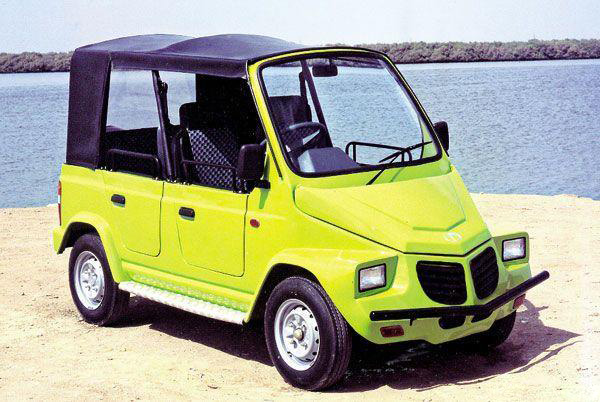
The dashboard was quite uninspiring, and the steering wheel was identical to the one provided with the Adam Revo, giving the inside a fairly modest appearance. Apart from a basic meter cluster, there was literally nothing on the dashboard. There was no glove box or any sort of storage compartment inside, whereas the gear lever resembled that of a truck. The back seats were more like a plain bench, whereas the front seats had some sort of head support. The idea of locking the car and leaving your belongings inside was simply not an option at all.
TMC Alif on display at a showroom
While the company claimed these vehicles were “modified and improved” according to the local needs, roads, and weather conditions. In reality, there was no suitable safety shell, no windows, and no proper roof because the Alif featured a soft top (fabric roof) similar to convertible (sports) vehicles.
Related: Remembering the Suzuki Potohar (SJ410)
In terms of dimensions, these cars measured 2,900 mm long, 1,360 mm wide, and 1,590 tall while having a 1,880 mm wheelbase. Under the hood, there was a 196cc four-stroke water-cooled engine that was able to run 25 km in a liter. If fitted with a CNG kit, the company claimed it gives 70 paisas per km. Bear in mind CNG back then used to cost around Rs 30 per kg.
TMC Alif from the launch event & on display at PAPS 2005
However, the real problem was the price. The TMC Alif car was priced at Rs 172,500. The TMC Bay pickup was available for Rs 166,750 while the TMC Bay delivery van was priced at Rs 189,750. The company was charging Rs 19,000 extra for the CNG kit. To give an idea, Adam Revo was priced at Rs 280,000 and Suzuki Mehran was available for around Rs 330,000 for the base version. The TMC vehicles were put on display at the 2005 PAPS (Pakistan Automobiles and Parts Show).
Related: Remembering the First-Gen Kia Sportage in Pakistan
The sort of money TMC was asking for these half-of-vehicles could get buyers some very decent used cars including Suzuki FX and Mehran and could still save money. Not to mention that those secondhand automobiles had “real cabins,” “safety shells,” and the comfort of a legitimate car. According to the Chief Executive Officer of TMC, Fasih Hussain Agha his company “created a new segment between a bike and an 800cc car, and that bike lovers now have a good option to have a cheaper car.”
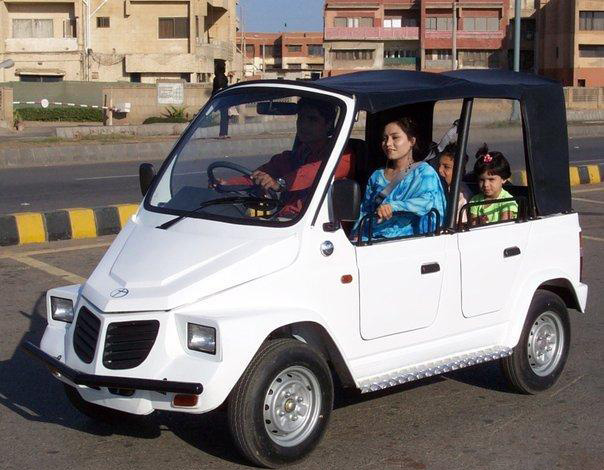
In reality, however, no bike owner preferred upgrading to the Alif car in presence of quality used cars in the market nor did anyone from the commercial sector opted for the Bay pickup & van. Despite showing a family traveling in the Alif automobile in its marketing ads, the company failed to capture the interest of real families.
Related: Remembering the Dependable Datsun Sunny 1200 GL
The company claimed that the Alif vehicle underwent endurance tests running 20,000 km on Karachi roads with a rated payload of 300 kg or four persons. The vehicle had a top speed of 75 km/h and the engine has adequate torque to climb mountains, according to TMC. Despite all the claims, the Alif and Bay automobiles were hardly ever seen outside of showroom floors, with the exception of a few extremely rare road sightings. The company also tapped the Green Taxi scheme with the Alif car, the CNG taxi version being priced at Rs 200,500, but the car even in taxis was not able to bring good fortunes for the company.
Rare examples of the TMC Alif seen on the roads in 2005/06
This resulted in a major marketing disaster, and the company perished even before properly setting off. TMC also claimed that the deletion level at the start was 67%, which would be increased to 90% in the next 5 years, ensuring locally available spare parts. The plant reportedly had an installed capacity of 5,000 vehicles per annum on an 8-hour single-shift basis. The CEO also claimed to have booked export orders to 6 countries from Asia, Africa, and South America. Despite reports that TMC was in fact able to export 8 cabs to Sudan and was anticipating additional contracts from various markets, the company received no beneficial orders.
Related: Remembering the Gonow Victor SUV
The case of TMC demonstrates that businesses without a solid foundation or credible marketing surveys are doomed to fail. The product itself had flaws, was never going to be a proper city traveler, the pricing was all off, and the fancy marketing catchphrases were never going to promote this vehicle which in fact was nothing less than a 4-wheel rickshaw.

A computer animation professional with over 23 years of industry experience having served in leading organizations, TV channels & production facilities in Pakistan. An avid car enthusiast and petrolhead with an affection to deliver quality content to help shape opinions. Formerly written for PakWheels as well as major publications including Dawn. Founder of CarSpiritPK.com

